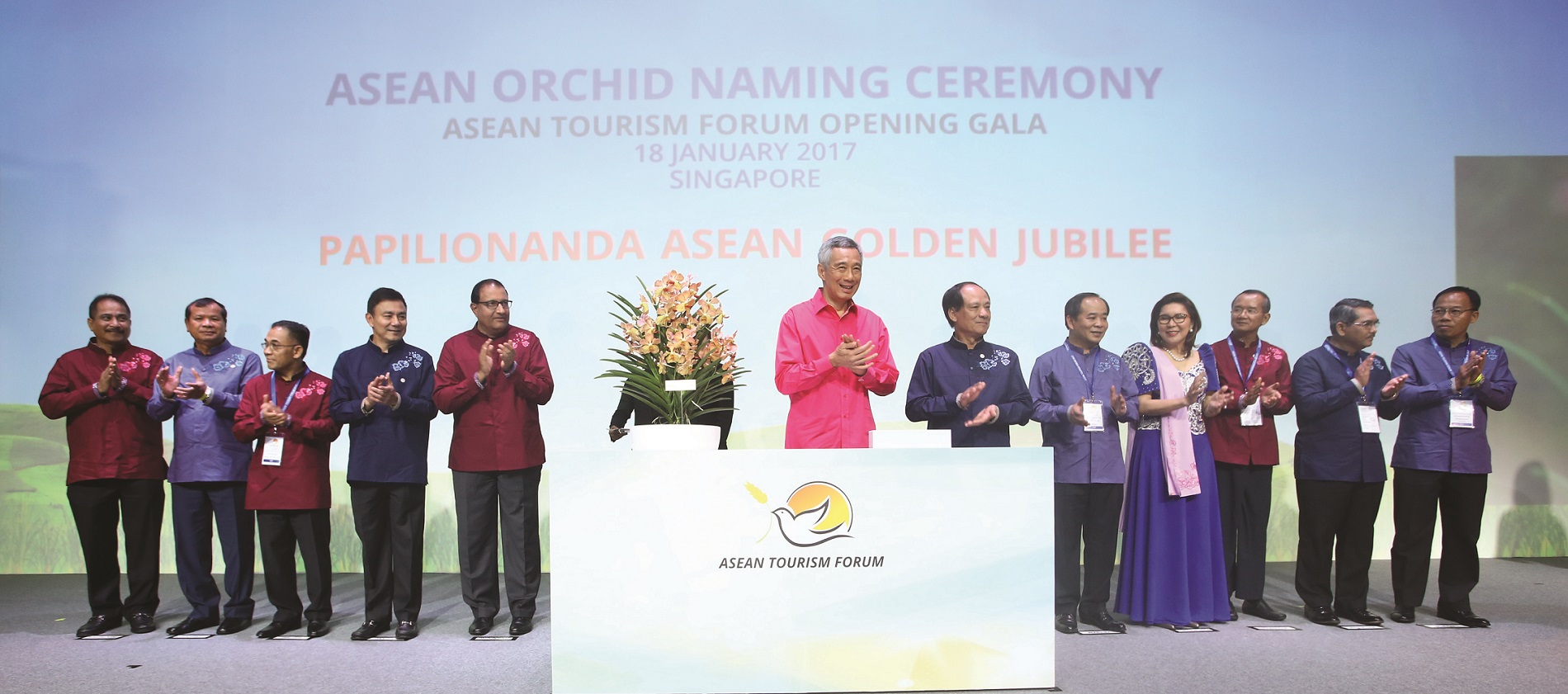
Singapore PM Lee and ASEAN Ministers at ATF 2017 opening ceremony
Beyond jointly marketing ASEAN through campaigns and promotions, Singapore’s prime minister Lee Hsien Loong has underscored the need to do “the less glamorous behind-the-scenes hard work” and proposed three ways towards a vibrant ASEAN tourism industry, namely through strengthening air links, building up cruise tourism and developing tourism talent.
During his speech at ATF 2017 opening ceremony on Wednesday, he noted ASEAN’s progress in growing air links, having more than doubled the annual air seat capacity of flights in the region while budget airlines have made travel affordable for the masses. All ASEAN members have ratified an open-skies agreement.
But there remains huge potential for tourist and air passenger numbers to grow further if ASEAN continues to strengthen its connectivity. “The more flights are available and the more affordable they are, the more tourists will come and the more tourism will prosper,” said Lee.
“Second, we should build up cruise tourism which has immense potential for development. It is growing in popularity in North Asia and Australia, and ASEAN is well placed to promote cruise tourism. We have archipelagos in ASEAN to rival the Aegean, the Caribbean or the South Pacific. We have year-long tropical weather and calm waters; we have diverse and attractive destinations within short sailing distances.
“But developing cruise tourism is a multilateral effort. We need to develop port infrastructure to receive bigger and newer ships. We need to work with cruise providers to create attractive alternative itineraries with multiple stops for tourists. Singapore is happy to be the lead co-ordinator for the ASEAN Cruise Development Initiative. We need to work together closely to make this happen, and harness opportunities under the ‘Cruise South-east Asia’ brand,” said Lee.
“Thirdly, we must develop our tourism talent. In ASEAN, we have the natural advantage of cultures that are warm, friendly and courteous, so visitors immediately feel comfortable and welcome. But our workers also need specific skills to run hotels properly, manage inventories and logistics, supply guides and interpreters, so we can deliver the high standards international tourists are accustomed to,” said Lee, adding that investing in workers also create opportunities and jobs for the locals.
As ASEAN marks its 50th year of founding this August, the Singapore leader also reminded delegates the importance of regional cooperation in today’s isolationism climate. Last year saw Britain’s vote for Brexit, the US elected a non-establishment candidate as its next president, and Europe distracted by corporate anxiety about jobs and immigrants, plus doubts about the whole European integration project.
“In this uncertain global environment, ASEAN is an important raft for all of us,” said Lee.
While ASEAN has made regional cooperation a success in South-east Asia, there’s a lot more work to be done, he said.
“We have to press on to deepen economic integration and boost connectivity among ASEAN countries, for example, through the Regional Comprehensive Economic Partnership and the Master Plan on ASEAN Connectivity. In security and counter-terrorism, we have to work more closely to share intelligence, counter extremist ideology and disrupt terrorism networks. In social and cultural areas, we have to continue to foster people-to-people ties.
“ASEAN’s objectives are not quite as ambitious as the EU’s but if ASEAN can build on what we have achieved, and deepen our cooperation across the board, all our peoples will benefit,” said Lee.




















